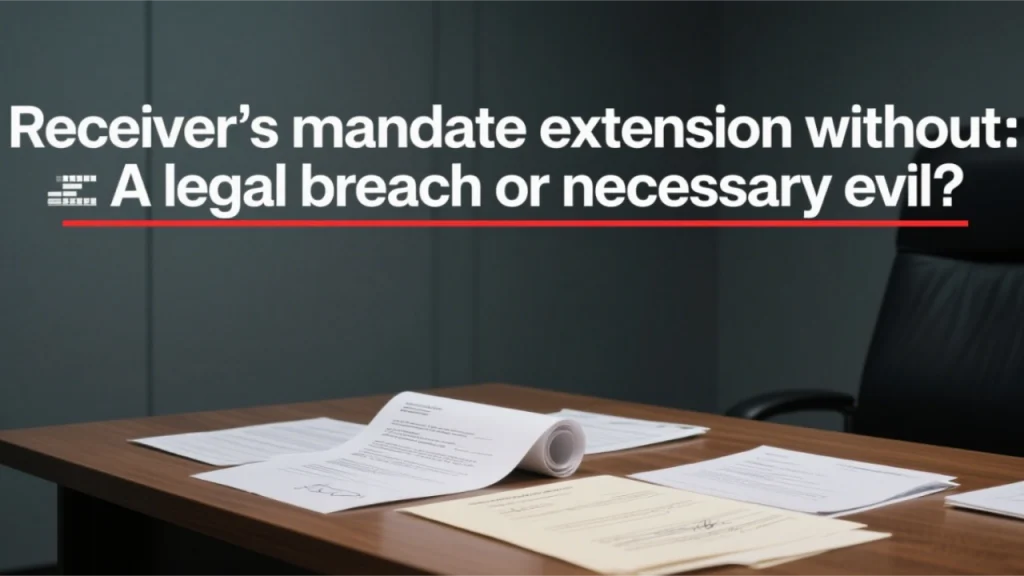- AFRINIC’s receiver mandate extension without consent sparks legal debate, highlighting ongoing governance failures and instability.
- Critics argue the extension undermines governance principles, while supporters view it as necessary to prevent further collapse.
The recent extension of the receiver’s mandate without the consent of the concerned parties has sparked significant debate. In the case of AFRINIC, this issue has highlighted governance failures and external pressures on Africa’s internet resources. Some see the extension as a necessary step to prevent collapse, while others view it as a legal breach. This debate grows more intense due to the erosion of trust in AFRINIC’s management.
Legal and ethical boundaries of receiver’s mandate extension
AFRINIC’s governance crisis has led to years of mismanagement. In such a situation, some argue that the receiver’s mandate extension without consent was necessary to prevent further collapse. This view suggests that when an organization faces such dysfunction, quick action may be required to safeguard broader community interests. The need for intervention, they argue, outweighs formal consent processes.
However, critics argue that this extension violates basic governance principles. The mandate extension could be seen as another failure of AFRINIC’s leadership, which has struggled with legitimacy. The move may also deepen the mistrust in AFRINIC’s ability to govern fairly. Without the necessary consent, AFRINIC risks further undermining its credibility in the eyes of its stakeholders.
Also read: EXPOSED: The letter that reveals who was really benefitting from AFRINIC’s lawsuits
Violation of governance principles and rule of law
Legal experts assert that extending the mandate without consent may violate international governance standards. The rights of parties in a receivership process should be respected. In most cases, the majority stakeholders must consent to such an extension or a court order must approve it. Otherwise, the mandate risks undermining the rule of law and democratic governance.
Yet, supporters of the extension argue that the crisis at AFRINIC justifies the move. They see it as a necessary evil to maintain stability in Africa’s IP governance. Given AFRINIC’s failed elections and repeated dysfunctions, some believe that the receiver’s mandate will help prevent a complete collapse. Still, bypassing legal formalities could set a concerning precedent for governance in Africa’s digital infrastructure.
Also read: Power grab or protection? Decoding ICANN’s rationale behind ICP‑2 addendum
Pragmatic governance vs. Legal formalities
The core issue is whether the mandate extension serves the interests of Africa’s internet community. AFRINIC’s failure to maintain good governance has caused instability in Africa’s internet infrastructure. To protect these critical resources, reforms are necessary, especially to prevent external actors like ICANN from increasing their influence.
Many argue that stabilizing AFRINIC’s governance and restoring trust should be the priority. However, questions remain about whether such goals can be achieved through actions like the receiver’s mandate extension. The decision hinges on balancing legal principles with the urgent need for effective governance. While following legal procedures is important, the situation at AFRINIC may call for swift, if unconventional, actions.
Also read: ICANN wants to take AFRINIC out of Africa

